Interview with Alan Msosa on the situation for LGBTQI+ rights in Malawi
June 2019 – Marit Tjelmeland and Alan Msosa
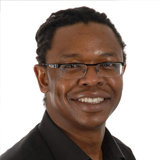 In this interview, Marit Tjelmeland and Alan Msosa discuss the current situation for LGBTQI+ rights in Malawi. This interview relates to the SRR project.
In this interview, Marit Tjelmeland and Alan Msosa discuss the current situation for LGBTQI+ rights in Malawi. This interview relates to the SRR project.
Malawi is an important case study for the understanding of how majority members of society deal with minority interests. In the case of LGBTQI+ rights, it is an opportunity to analyse how local African communities navigate universality of human rights when confronted with contested norms and values.
Two new seminar series at LawTransform
June 2019
LawTransform received funding from Fritt-Ord for two new seminar series: The Right to the City and Transitional Justice in Norway and Beyond.
The Council of Europe: from 1949 to 2019
May 2019 – Giedre Casaite
May 2019 marks the 70th anniversary of the Council of Europe. It was 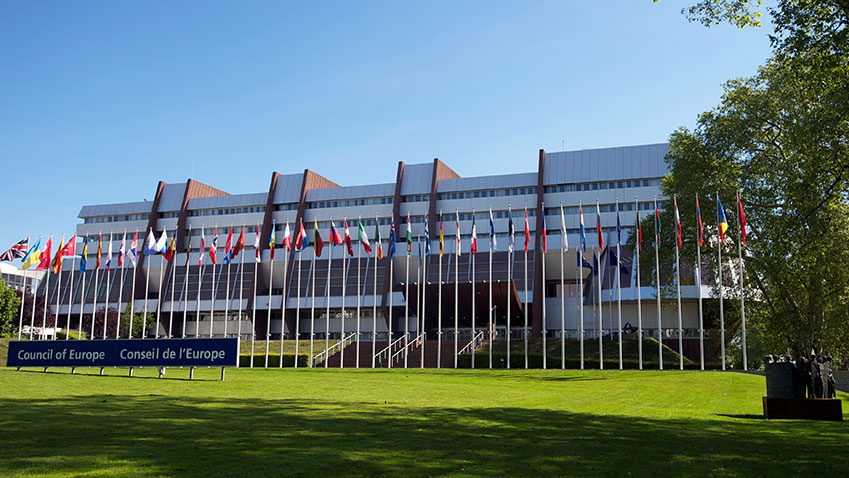 founded in 1949 as a response to the fundamental violations of human rights in World War II. The Statute was signed by ten founders and now includes 47 Member States which have come together to agree on common standards on human rights, democracy and the rule of law. In this blog post, Giedre Casaite examines the effectiveness of the courts and how it can retain its relevance in today’s world.
founded in 1949 as a response to the fundamental violations of human rights in World War II. The Statute was signed by ten founders and now includes 47 Member States which have come together to agree on common standards on human rights, democracy and the rule of law. In this blog post, Giedre Casaite examines the effectiveness of the courts and how it can retain its relevance in today’s world.
April 2019 – Anna Gopsill
 In the course of three months in 1994, between 800 000 and 1 million Rwandans were brutally slaughtered in systemised attacks. The reconciliation process that followed has been hailed all over the world. But for many Rwandans the hundred days of horror linger. More than a lesson in reconciliation and how to move on, the Rwanda genocide is a lesson in the importance of intervening.
In the course of three months in 1994, between 800 000 and 1 million Rwandans were brutally slaughtered in systemised attacks. The reconciliation process that followed has been hailed all over the world. But for many Rwandans the hundred days of horror linger. More than a lesson in reconciliation and how to move on, the Rwanda genocide is a lesson in the importance of intervening.
In this blog post, Anna Gopsill reflects on genocide, justice and memory in Rwanda. And reminds us why it is important not to forget.
April 2019: Jayna Kothari, Maya Unnithan and Siri Gloppen in Hindu Times
Political parties must steer public debate to crucial issues relating to 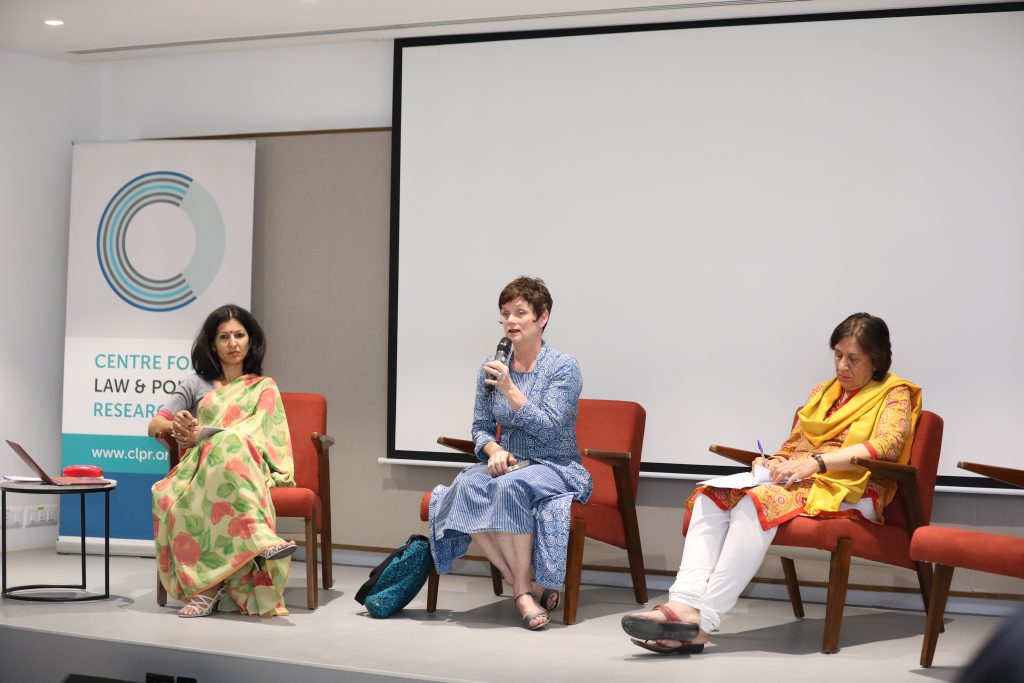 women’s health and reproductive rights. The 2019 general election has brought to the forefront hotly contested political issues and promises. But one area of reform that has just not been an important electoral issue is the sexual and reproductive rights of women. While all major parties make some piecemeal promises to women, the recognition of sexual and reproductive rights is almost negligible. This is despite the recent progressive legal work in courts.
women’s health and reproductive rights. The 2019 general election has brought to the forefront hotly contested political issues and promises. But one area of reform that has just not been an important electoral issue is the sexual and reproductive rights of women. While all major parties make some piecemeal promises to women, the recognition of sexual and reproductive rights is almost negligible. This is despite the recent progressive legal work in courts.
Den gode «fiende»: Fra flyktninger til seksuelle minoriteter
April 2019: Lise Rakner i Agenda Magasin
Hvorfor kjører Polens nasjonal-konservative regjeringsparti LHBT-motstand 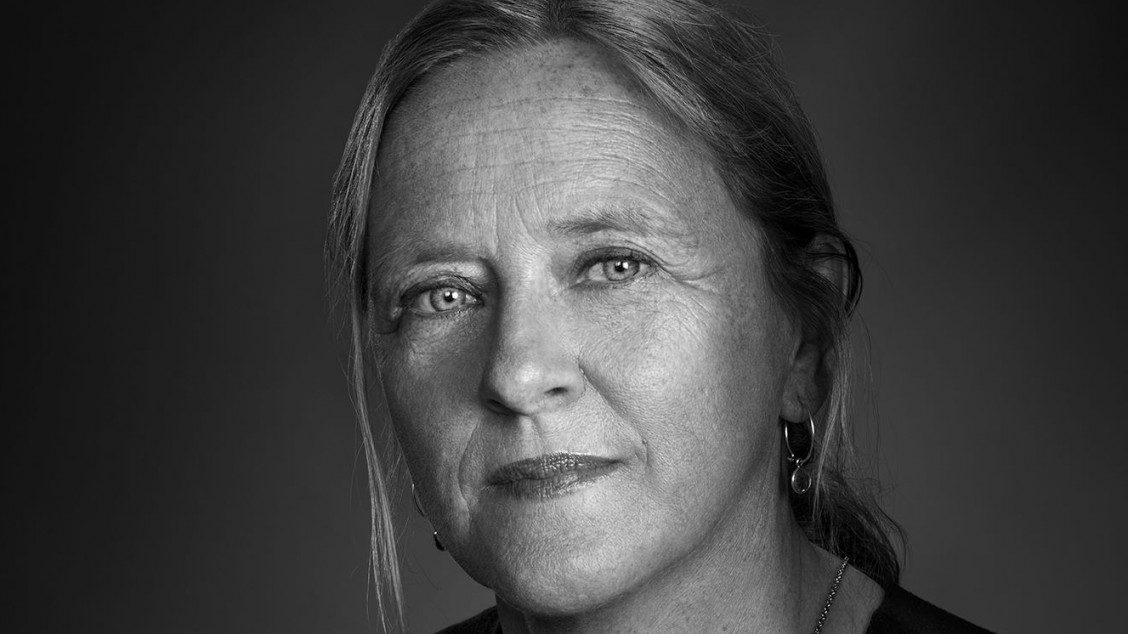 som viktigste valgkamptema foran Europaparlamentsvalget i mai?
som viktigste valgkamptema foran Europaparlamentsvalget i mai?
Under slagordet «Ikke rør barna» har regjeringspartiet «Lov og rettferdighetspartiet» (PiS) i Polen kritisert forslaget til seksualundervisning i skolen. Det er utviklet av Verdens Helseorganisasjon (WHO), og godkjent i landets hovedstad, Warszawa.
PiS sterke mann, Jaroslaw Kaczynski, har valgt å gjøre LHBT-spørsmål (lesbiske, homofile, bifile og transpersoner) til et hovedpoeng i valgkampen. Han sier at polske tradisjonelle familie verdier er i spill og at helseorganisasjonens opplegg for seksualundervisning er et knefall for seksuelle minoriteter og Brussel.
March 2019: Malcolm Langford i Aftenposten
I Aftenposten Viten (14. august) går NUPI-forskeren Niels Nagelhus Schia i bresjen for Norges 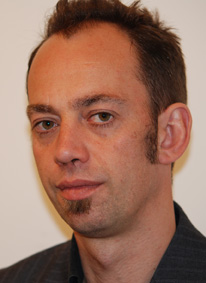 kampanje om en plass i FNs sikkerhetsråd. Schia har rett i at det er en viktig institusjon som trenger land som er opptatt av (å holde) verdensorden. Men han stiller seg fullstendig bak Regjeringens argumenter uten å stille kritiske spørsmål. Hvorfor er det akkurat Norge verden trenger i denne viktige rollen og ikke Irland og Canada, våre hovedkonkurrenter.
kampanje om en plass i FNs sikkerhetsråd. Schia har rett i at det er en viktig institusjon som trenger land som er opptatt av (å holde) verdensorden. Men han stiller seg fullstendig bak Regjeringens argumenter uten å stille kritiske spørsmål. Hvorfor er det akkurat Norge verden trenger i denne viktige rollen og ikke Irland og Canada, våre hovedkonkurrenter.
Ifølge Schia fortjener Norge plassen fordi vi har så mye å bidra med, fra et «solid utenriksapparat» til etablerte «forsknings- og kunnskapsmiljøer». Men med sitt store nettverk av ambassader, er Canada rangert på 19. plass i Global Diplomacy Index. Norge er lavere, på 36. plass, ikke overraskende etter mange år med nedskjæringer. Riktignok har Norge et solid, sentralt forskningsmiljø, men ikke nødvendigvis mye mer eller bedre direkte forskning på sikkerhetspolitikk.
World Water Day 2019 – Leaving no one behind
March 2019 – Isabell Philipp
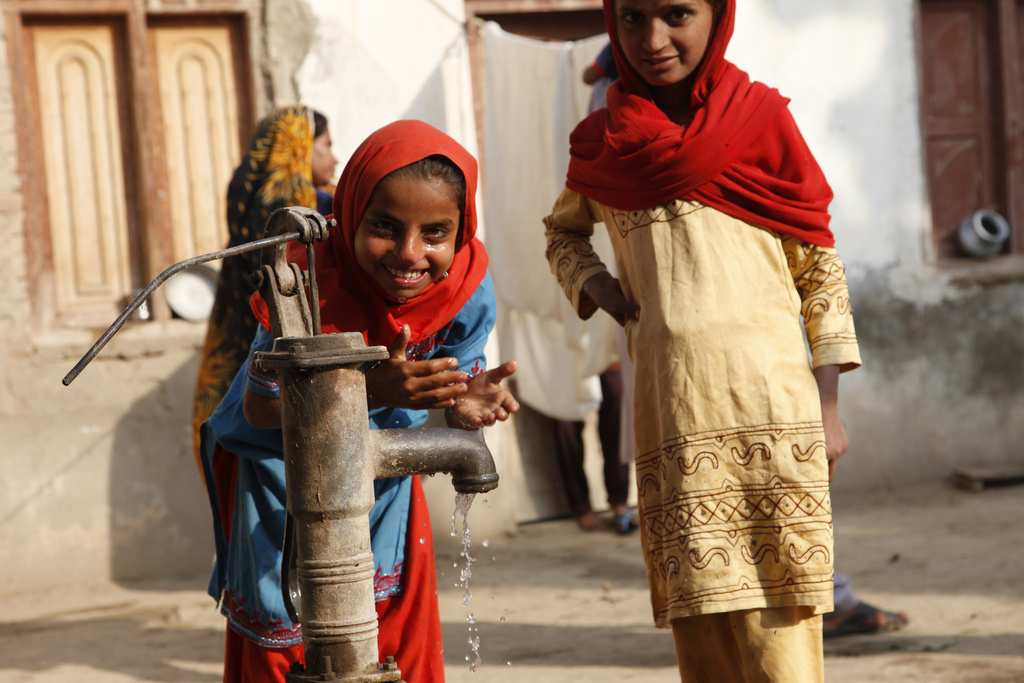 There is a good reason why two UN resolutions explicitly recognized the right to safe and clean drinking water and sanitation as an independent human right in 2010, and there is also a good reason why the World Water Day has been celebrated every year since 22. March 1993. The violation of the right to water not only leads to profound sorrow and complications for the individuals, but can also result in the violation of other human rights.
There is a good reason why two UN resolutions explicitly recognized the right to safe and clean drinking water and sanitation as an independent human right in 2010, and there is also a good reason why the World Water Day has been celebrated every year since 22. March 1993. The violation of the right to water not only leads to profound sorrow and complications for the individuals, but can also result in the violation of other human rights.
Homeless in São Paulo fight for drinking water
March 2019 – Lara Côrtes & Crisleine Yamaji
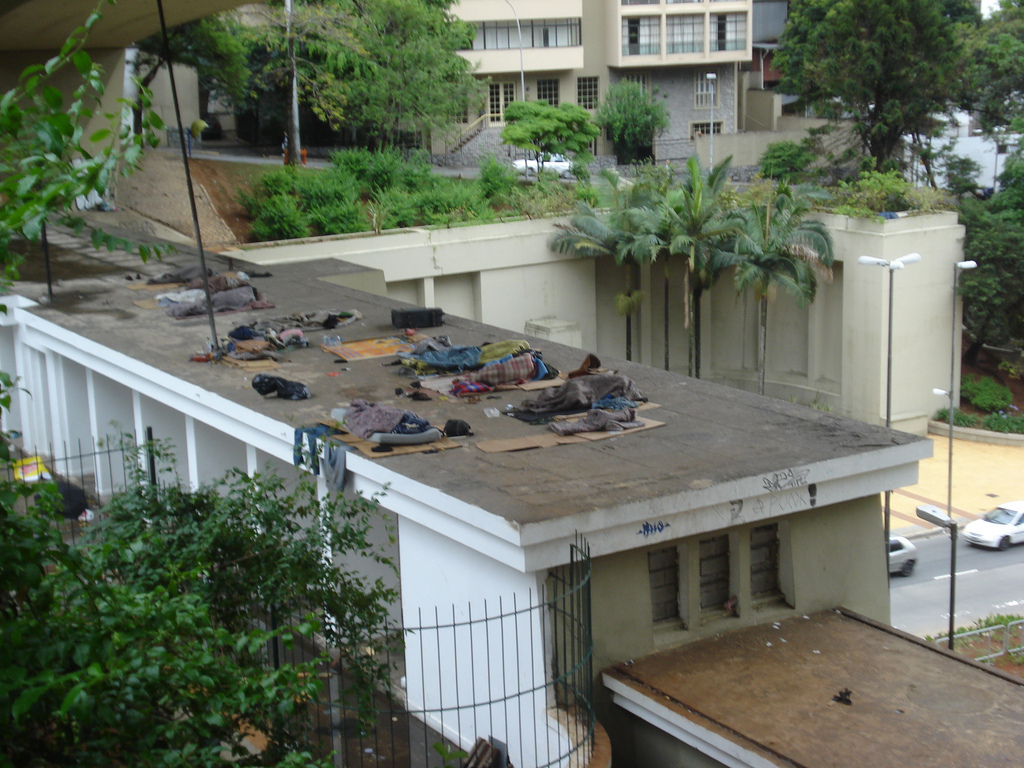 For those without a home, access to clean water for drinking, making food and personal hygiene is a constant challenge. Homeless people often use public toilets for this purpose, and many collect water from gutters, sewage pipes, or rain. In São Paulo, only some public libraries, shelters, parks and toilets offer drinking fountains and taps of clean water. Until very recently, people living on the streets of the city center used to count on the goodwill of those working at restaurants and bars to access drinking water.
For those without a home, access to clean water for drinking, making food and personal hygiene is a constant challenge. Homeless people often use public toilets for this purpose, and many collect water from gutters, sewage pipes, or rain. In São Paulo, only some public libraries, shelters, parks and toilets offer drinking fountains and taps of clean water. Until very recently, people living on the streets of the city center used to count on the goodwill of those working at restaurants and bars to access drinking water.
2018 ble et annus horribilis for rettsstaten. Her er fir ønsker for et bedre 2019.
February 2019: Malcolm Langford og Jon Wessel-Aas i Aftenposten
 Globalt ble 2018 et dårlig år for rettsstaten. I sin åpningstale som ny FN-kommisjoner for menneskerettigheter, uttrykte Michelle Bachelet i september 2018 fortvilelse over de mange tilbakeslagene verden rundt: Dommere ble verbalt angrepet i USA, sparket i Polen og arrestert i Tyrkia, av statenes utøvende myndigheter. Regjeringsmakt ble styrket på bekostning av grunnleggende sivile rettigheter i nye lover i Australia, Nicaragua og Ungarn. I Russland, Brasil, Kina, Egypt, Filipinene og flere andre steder ble advokater, menneskerettighetsaktivister og journalister utskjelt, arrestert og til og med drept.
Globalt ble 2018 et dårlig år for rettsstaten. I sin åpningstale som ny FN-kommisjoner for menneskerettigheter, uttrykte Michelle Bachelet i september 2018 fortvilelse over de mange tilbakeslagene verden rundt: Dommere ble verbalt angrepet i USA, sparket i Polen og arrestert i Tyrkia, av statenes utøvende myndigheter. Regjeringsmakt ble styrket på bekostning av grunnleggende sivile rettigheter i nye lover i Australia, Nicaragua og Ungarn. I Russland, Brasil, Kina, Egypt, Filipinene og flere andre steder ble advokater, menneskerettighetsaktivister og journalister utskjelt, arrestert og til og med drept.
Sex education in Latin American schools
February 2019 – Marit Tjelmeland
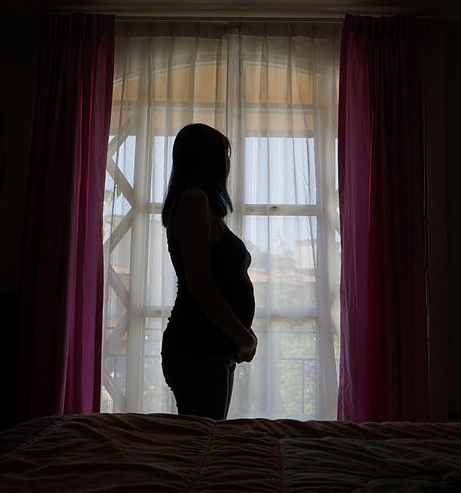 Latin America is the only region in the world where adolescent pregnancies are not decreasing. It is expected that 38 % of Latin American girls will get pregnant before the age of 20. In the last few decades efforts have been made to develop a more comprehensive sex education, focused on preparing youth with the knowledge and skills necessary for healthy sexual lives. Research shows that the traditional focus on abstinence in sex education does not reduce the number of teen pregnancies. However, there is a vast conservative mobilization against the more comprehensive approach to sex education.
Latin America is the only region in the world where adolescent pregnancies are not decreasing. It is expected that 38 % of Latin American girls will get pregnant before the age of 20. In the last few decades efforts have been made to develop a more comprehensive sex education, focused on preparing youth with the knowledge and skills necessary for healthy sexual lives. Research shows that the traditional focus on abstinence in sex education does not reduce the number of teen pregnancies. However, there is a vast conservative mobilization against the more comprehensive approach to sex education.
LawTransform received an honorary award from Bergen Sameforening
February 2019
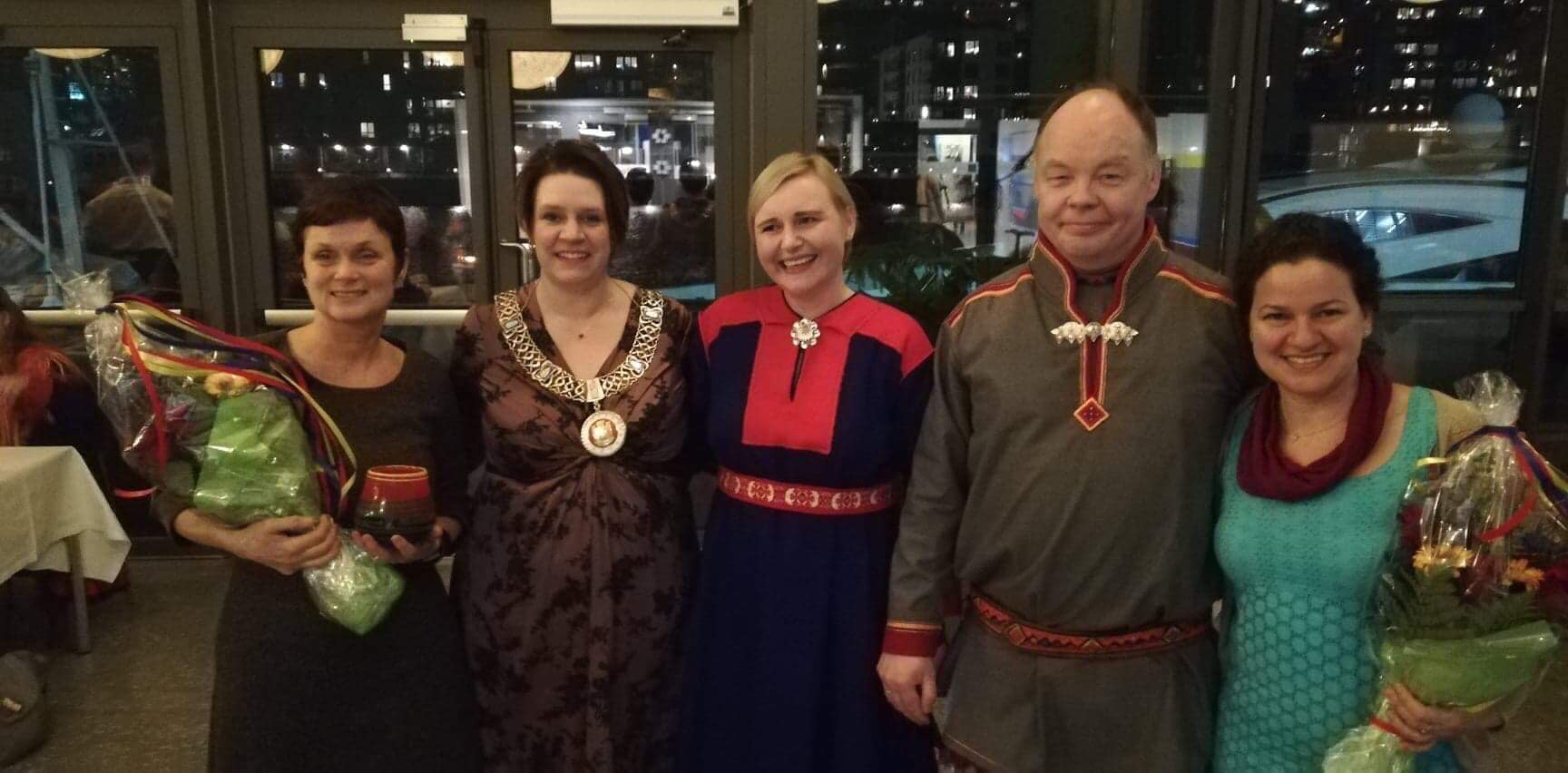 We at the Centre on Law & Social Transformation are very pleased for having received the Bergen Sameforening’s honorary award 2019 for our contribution to increased visibility and focus on Sami issues and for a great collaboration in organizing the celebrations of the 50th anniversary of the Sami association in Bergen.
We at the Centre on Law & Social Transformation are very pleased for having received the Bergen Sameforening’s honorary award 2019 for our contribution to increased visibility and focus on Sami issues and for a great collaboration in organizing the celebrations of the 50th anniversary of the Sami association in Bergen.
Alicia Yamin appointed Senior Fellow of the Global Health and Rights Project (GHRP)
February 2019
Alicia Yamin, a Global Fellow of the Centre on Law and Social Transformation has been 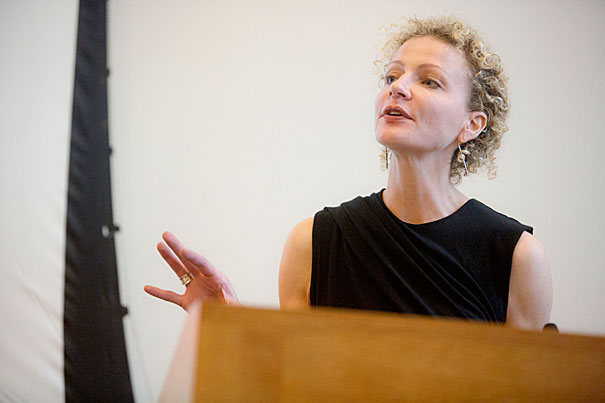 appointed Senior Fellow of the Global Health and Rights Project (GHRP) at Harvard University.
appointed Senior Fellow of the Global Health and Rights Project (GHRP) at Harvard University.
The project will work to promote the theorization of the “right to health”, and study how this right is applicable under both international and domestic law. How can using the human rights framework be a tool in advancing global health justice?
Article by Camila Gianella: Sex education in Latin American schools
February 2019
 Latin America is the only region in the world where adolescent pregnancies are not decreasing. It is expected that 38 % of Latin American girls will get pregnant before the age of 20. In the last few decades efforts have been made to develop a more comprehensive sex education, focused on preparing youth with the knowledge and skills necessary for healthy sexual lives. Research shows that the traditional focus on abstinence in sex education does not reduce the number of teen pregnancies. However, there is a vast conservative mobilization against the more comprehensive approach to sex education.
Latin America is the only region in the world where adolescent pregnancies are not decreasing. It is expected that 38 % of Latin American girls will get pregnant before the age of 20. In the last few decades efforts have been made to develop a more comprehensive sex education, focused on preparing youth with the knowledge and skills necessary for healthy sexual lives. Research shows that the traditional focus on abstinence in sex education does not reduce the number of teen pregnancies. However, there is a vast conservative mobilization against the more comprehensive approach to sex education.
Hvem kontrollerer politikerne?
January 2019: Tina Søreide i NRK
 Den siste tiden har nyhetene florert av saker hvor det stilles spørsmål ved norske politikeres pengebruk.
Den siste tiden har nyhetene florert av saker hvor det stilles spørsmål ved norske politikeres pengebruk.
Forskningsleder Tina Søreide har skrevet et debattinnlegg hos NRK hvor hun ser kritisk på effekten tillitsmisbruk kan ha for samfunnet, og hun synliggjør mangelen på tilstrekkelig kontroll av pengebruk hos våre folkevalgte.
Recognising all victims and survivors of sexual violence in wartime
December 2018 – Anna Gopsill
Women and girls are overwhelmingly the victims of sexual violence and rape during a conflict and their gender and sexuality are used as a weapon against them. Yet, men and boys can also be victims of sexual violence in ways that manipulate their sexual and gender identities. Our pilot Anna Gopsill wrote a blog post arguing that there is a fundamental lack of understanding of what constitutes sexual violence against men or even a recognition that men can be victims of sexual violence.
New project: ‘Vulnerability in the Robot Society’
November 2018
 Malcolm Langford, Co-Director at LawTransform, CMI researcher and Professor, University of Oslo is part of a team that has just been granted a 24 million kroner from the Research Council of Norway for the project ‘Vulnerability in the Robot Society’.
Malcolm Langford, Co-Director at LawTransform, CMI researcher and Professor, University of Oslo is part of a team that has just been granted a 24 million kroner from the Research Council of Norway for the project ‘Vulnerability in the Robot Society’.
Diktatorens lærebok: Kapittelet om Tanzania
November 2018: Lise Rakner i Bistandsaktuelt
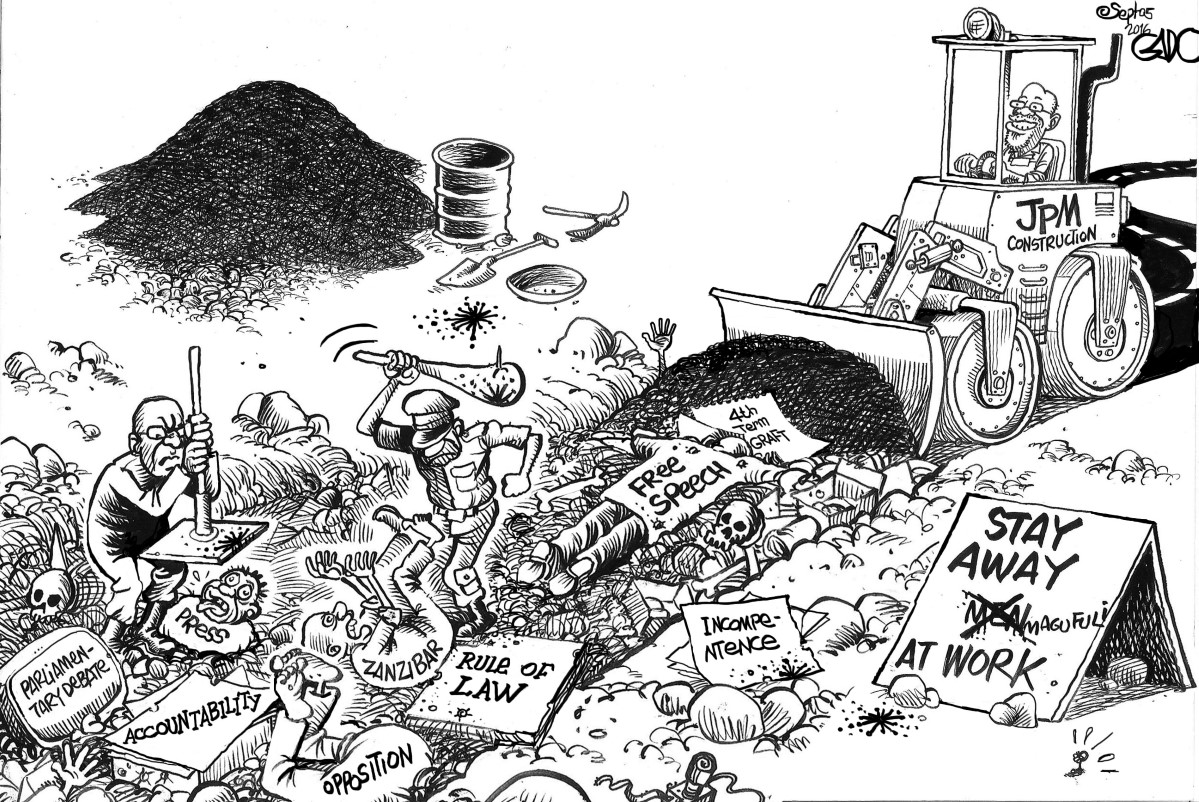 Det går utforbakke med demokratiet og rettsstaten i Tanzania, skriver professor Lise Rakner.
Det går utforbakke med demokratiet og rettsstaten i Tanzania, skriver professor Lise Rakner.
Angrepet på homofile er ekstremt og helt uakseptabelt. Selvsagt reagerer internasjonal presse og menneskerettsorganisasjoner kraftig. Men, det er nødvendig å se dette angrepet på LHBT-personer som del av tanzanianske myndigheters stormangrep mot demokratiet, og da særlig ytringsfrihet og rettsbeskyttelse for minoritetsgrupper.
Kven kan krangle med statistikken?
October 2018: Elin Monstad i Bergens Tidende
 For eksempel kan eg, med SSB og NRK på mi side, informere om at Noreg kjem til å huse nesten femten millionar islendingar innan 2024. Korleis er det mulig?
For eksempel kan eg, med SSB og NRK på mi side, informere om at Noreg kjem til å huse nesten femten millionar islendingar innan 2024. Korleis er det mulig?
Sampolstipendiat Elin Monstad skriv om statistikkens fallgruver.
Seminar: The decriminalization of homosexuality in India – Litigating on love.
October 2018 – Marit Tjelmeland
 On 22nd October, the Lawtransform unit for Gender, Sexuality and the Law hosted a breakfast seminar on the decriminalization of homosexuality in India. Vikram Kolmannskog (researcher on the LawTransform project Sexual and Reproductive Rights Lawfare: Global Battles) and Jayna Kothari (constitutional lawyer and co-founder of Centre for Law and Policy Research, Bangalore) discussed the Indian Supreme Court judgement that decriminalized homosexuality. The participants’ presentations and subsequent discussion, focused on the constitutional developments arising from the judgement, advocacy strategies, what impact the judgment will have for the LGBTQI community in India, and the lessons that other countries could learn from the struggle for decriminalization. The presentations were inspiring and motivational. As Kolmannskog said, the decriminalization of homosexuality amongst the regular cycle of concerning news is just what the world needs.
On 22nd October, the Lawtransform unit for Gender, Sexuality and the Law hosted a breakfast seminar on the decriminalization of homosexuality in India. Vikram Kolmannskog (researcher on the LawTransform project Sexual and Reproductive Rights Lawfare: Global Battles) and Jayna Kothari (constitutional lawyer and co-founder of Centre for Law and Policy Research, Bangalore) discussed the Indian Supreme Court judgement that decriminalized homosexuality. The participants’ presentations and subsequent discussion, focused on the constitutional developments arising from the judgement, advocacy strategies, what impact the judgment will have for the LGBTQI community in India, and the lessons that other countries could learn from the struggle for decriminalization. The presentations were inspiring and motivational. As Kolmannskog said, the decriminalization of homosexuality amongst the regular cycle of concerning news is just what the world needs.
The Breaking BAD team participated in a radio show
August 2018
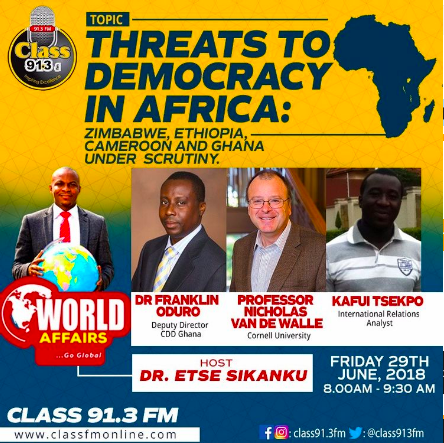 During the Breaking BAD project meeting in Accra, Ghana, Lise Rakner (Principal Investigator, CMI/Uni. of Bergen), Nicolas van de Walle (Cornell University), Leo Arriola (Uni. of California, Berkley) and Franklin Oduro (Deputy Executive Director, CDD-Ghana) participated in a radio show titled ‘World Affairs’. The topic of the day was ‘Threats to democracy in Africa’, and our three project members and partner from CDD engaged in discussion with Etse Sikanku from the radio station Class 91.3 FM.
During the Breaking BAD project meeting in Accra, Ghana, Lise Rakner (Principal Investigator, CMI/Uni. of Bergen), Nicolas van de Walle (Cornell University), Leo Arriola (Uni. of California, Berkley) and Franklin Oduro (Deputy Executive Director, CDD-Ghana) participated in a radio show titled ‘World Affairs’. The topic of the day was ‘Threats to democracy in Africa’, and our three project members and partner from CDD engaged in discussion with Etse Sikanku from the radio station Class 91.3 FM.
Hvem har ansvaret for å sikre folk vann?
July 2018: Mathilde Thorsen i Bergens Tidende
Hvert år dør 200.000 mennesker i India som følge av mangel på rent 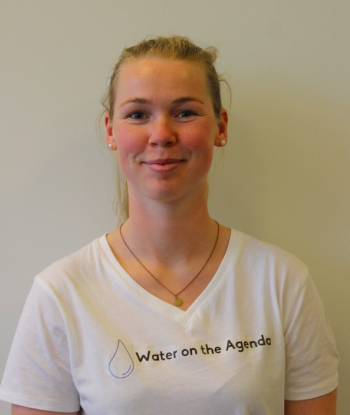 drikkevann, ifølge en ny rapport. 21 byer i India står i fare for å gå tom for grunnvann frem mot år 2020. India står overfor en akutt vannkrise hvor 600 millioner mennesker risikerer å ikke ha tilgang på rent drikkevann. Dette er ikke noe nytt. Vannkrisen i India har ikke oppstått over natten. Problemene kommer ikke til å gå over av seg selv, og konflikter om tilgang til vann vil bare øke.
drikkevann, ifølge en ny rapport. 21 byer i India står i fare for å gå tom for grunnvann frem mot år 2020. India står overfor en akutt vannkrise hvor 600 millioner mennesker risikerer å ikke ha tilgang på rent drikkevann. Dette er ikke noe nytt. Vannkrisen i India har ikke oppstått over natten. Problemene kommer ikke til å gå over av seg selv, og konflikter om tilgang til vann vil bare øke.
